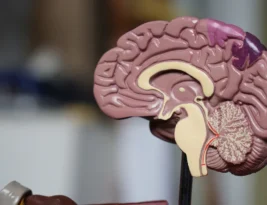Learn how to identify narcissistic traits in your brother with this step-by-step quiz. Protect your emotional well-being today. …
Blog Posts
Identify narcissistic eyes with 7 key signs, including intense stares, emotional voids, and manipulative gaze patterns. Learn how these traits reveal behavior. …
Understand covert narcissist post-breakup behaviors like silent treatment, smear campaigns, and hoovering. Learn why they act this way and how to protect yourself. …
Unmask female narcissists over 50 with these essential recognition strategies. Aging narcissists use distinctive manipulation tactics—learn to protect your boundaries today. …
Discover 7 facial tells that expose narcissists—contempt smirks, predatory stares, and micro-expressions revealing hidden arrogance. …
Understand high-functioning narcissists, their traits, and behaviors. Learn how to identify them and protect your emotional well-being in relationships and work. …
Understand the traits of a neglectful narcissist, their impact on relationships, and how to set boundaries. …
Do Narcissists’ Black Eyes Reveal a Disturbing Secret? …
The Science Behind Crafting the Perfect Yellow Rock Reply (It's Easier Than You Think!) …
Identifying Subtle Manipulations and Impact of Covert Narcissistic Sister on Family Dynamics …
Narcissists lie to control situations, protect their self-image, and avoid blame. Understand why do narcissists lie and how it impacts relationships. …
The Narcissist Prayer by Dayna Craig reveals denial, blame-shifting, and gaslighting in narcissistic behavior, helping readers recognize toxic patterns. …
Are narcissists bullies? Insecurity, need for power, and lack of empathy link narcissism and bullying, affecting victims’ emotional health. …
How to Leave a Narcissist: Find safe, practical strategies to leave a narcissist husband, protect your well-being, and regain independence. …
Navigate office challenges with a narcissistic coworker using practical strategies for boundaries, stress management, and team well-being. …
Exploring the Narcissism and Dementia Connection through recent studies. Understanding how narcissistic traits may relate to cognitive aging and decline. …













